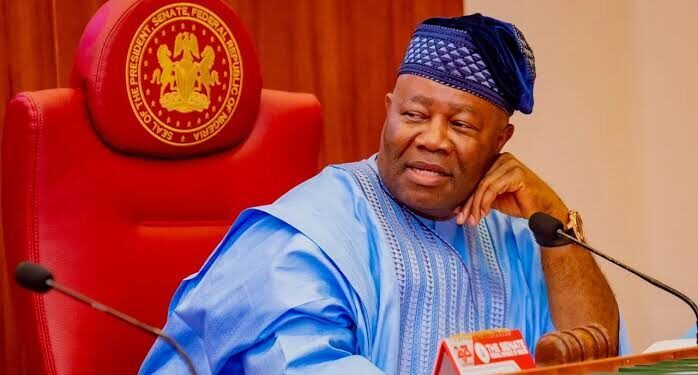The 10th National Assembly is poised to advance legislation on digital innovation and the application of artificial intelligence for diagnosis and surveillance, with the aim of enhancing universal health coverage in Nigeria.
Godswill Akpabio, Senate president and chairman of the assembly, made this commitment at the sixth annual legislative summit on health in Abuja on Tuesday.
Mr Akpabio outlined plans to enhance telemedicine, implement electronic health records, and leverage artificial intelligence for diagnostics and surveillance, with the aim of improving healthcare delivery.
He revealed that the assembly would also review, strengthen, and modernise laws to reflect global best practices and ensure that the Basic Health Care Provision Fund reached all target communities.
“We shall advance legislation that supports digital innovation—telemedicine, electronic records, and the use of artificial intelligence for diagnosis and surveillance. We must build a digital backbone that connects every primary health centre with every tertiary hospital, ensuring continuity of care, transparency, and accountability,” he said.
While emphasising the need for health coverage reform, he said, “We cannot build a 21st-century nation with 19th-century tools. Innovation is not an accessory; it is our lifeline.”
He added that every clinic, ward, and laboratory must become part of a living network of data, knowledge, and service.
“I affirm our resolve to place health at the heart of national development. We shall defend its funding, enforce its accountability, and protect the rights and welfare of every worker in the health sector,” he stated.
Ipalibo Harry-Banigo, chairperson of the National Assembly Committee on Health (secondary and tertiary), stated that the summit’s theme reflected a collective commitment to building a health system that is equitable, accessible, innovative, and future-ready.
Ms Harry-Banigo, who is also the chair of the Legislative Network for Universal Health Coverage, added that achieving UHC required not only adequate funding and policy but also a strong, adaptive system driven by innovation, knowledge, and collaboration.
Similarly, Salma Ibrahim-Anas, special adviser to the president on health, reaffirmed the federal government’s commitment to accelerating UHC, digital transformation, robust human capital, development, and essential infrastructure.
“We are committed to achieving responsive health systems that will be affordable and accessible to all Nigerians, especially the vulnerable people,” she said.
Pavel Ursu, the WHO country representative in Nigeria, said the summit would drive health reforms with a population impact, leading to economic improvement and poverty reduction.
Mr Ursu added that through proactive legislative actions, Nigeria could optimise the enabling environment for innovative health financing, digital transformation, and strategic investments in human capital.
Additionally, Muriel Mafico, the resident representative of the United Nations Population Fund, stated that the UNFPA was committed to supporting the health reform sector through coordinated, sector-wide approaches.
(NAN)






